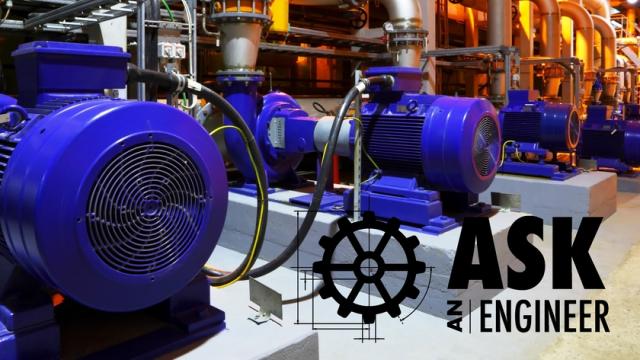Are Three-phase Motors More Efficient Than Single-phase Units?
Three-phase motors are slightly more efficient and cost-effective than single-phase units for two reasons — the power delivery mechanism and motor design.
With three power lines coming in 120 degrees out of phase from each other, the peaks of successive waves are closer together. This means less time between each successive peak, and a motor that runs more smoothly and efficiently.
Also, three-phase motors are designed so that the coils in the stator are connected to form three separate windings — one for each line (A, B and C). Each winding contains one-third of the total number of coils in the motor, reducing overall losses within the device.
In larger applications, three-phase motors can be much more efficient than single-phase units. Three-phase motors also typically cost less to purchase, since they don't have capacitors. Because each phase draws less current than a single-phase winding, the wires can be smaller in diameter, which also decreases cost.
Should you switch to a three-phase unit? Despite their cost and performance advantages, three-phase motors aren't a good fit for every situation. Some facilities lack readily available three-phase power. Also, other heavily used equipment, such as lighting and computers, typically runs exclusively on single-phase power. Rewiring and other costs to install a three-phase system can be significant. Also, if you have addressed harmonics and power quality issues with your single-phase motors, they may need to be revisited with a three-phase design.
In applications where the motor load is relatively light, the potential payback for three-phase may not justify the initial cost. Carefully consider the application, as well as the costs and benefits before making the decision to install a three-phase unit or replace an existing single-phase system.
November 2023 Connections Newsletter
From industry trends and best practices to sustainability initiatives, our monthly Connections Newsletter provides valuable insights, updates, and resources to support our large business customers.
Full Newsletter